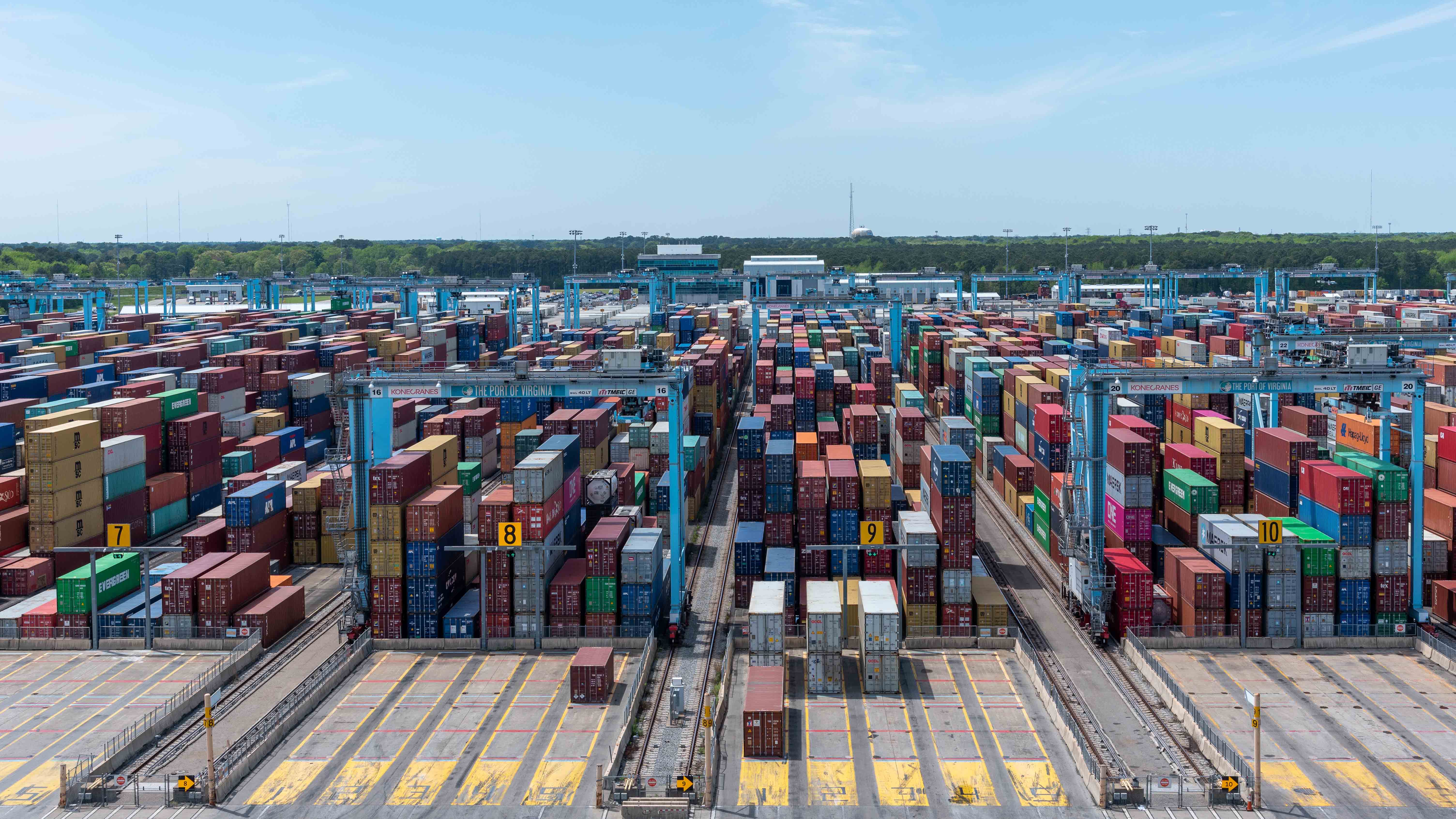
The business of moving goods and materials around the globe is a huge one, with a massive presence in Hampton Roads.
After years of discussion with industry leaders, Old Dominion University has started a brand-new school to train people for the maritime industry.
Elspeth McMahon, a long-time maritime educator and U.S. Navy Reserve officer, will lead the school's maritime initiatives across multiple schools.
WHRO sat down with McMahon to talk about just how many different kinds of jobs go into the shipping industry.
(This conversation has been edited for length and clarity.)
WHRO: Welcome Elspeth, thanks for sitting down with us.
Elspeth McMahon: Thank you. Ryan I'm very excited to be here and to talk about Old Dominion University's maritime efforts.
WHRO: Okay, so the ODU School of Supply Chain Logistics and Maritime Operations. There's a lot of words and ideas in that. In plain English, what's the idea behind the school?
EM: So this new school does cover a lot. We're basically starting this school because we're listening to the industry.
So if you look at the Bureau of Labor Statistics, this shows the demand for workers trained in logistics is projected to increase by 30% in the next decade. So from 2020 to 2030, 30% increase in demand for workers. So we're doing this in response to that demand.
For example, the Port of Virginia, they have increased their container input by 15% from fiscal year '21. So in fiscal year 2022, they increased their TEU, their container capacity, to I think 3.7 million. So just massive, massive numbers. So the port is expanding. If you look around us, look at all the companies that touch maritime. Everyone is expanding. A lot of companies are moving to Norfolk and the greater region because of all of its resources and the availability of the ports and the shipyards.
And we're looking at fulfilling those types of jobs in logistics: transportation coordinators, port and terminal supervisors, project managers, transportation analysts, sales, logistics, warehouse specialists, ship superintendents, ship agents, terminal operators, purchasing managers.
For the maritime piece of that, we're looking at how we can kind of add research to answer types of problems that the industry faces with supply chain.
WHRO: Okay, so I'm a high school student or I'm a year or two into college. Beyond those logistics jobs you mentioned, what other kinds of jobs are we talking about?
EM: (There's) coastal engineering, marine engineering, marine science and technology, even things like naval architecture, oceanography, coastal resilience. And if you think of kind of outside the maritime world, if you're interested in a career in information technology, even geography, history, management, data science, cybersecurity, all of these fields can lead to a career in the maritime industry.
So one of the reasons why I'm here to work at ODU is to kind of bring ODU on the map, on the maritime radar, to kind of bridge that gap between education and industry.
If you don't want to go the full academic route and you're interested in skilled trades, there are plenty of jobs out there from robotics, welding, I.T., cybersecurity, automation. ODU definitely can provide the training and the needs to meet what your interests are.
WHRO: Since the pandemic started, people have become much more aware of the supply chain and how big a part of everyday life it is. How do you think about training people for that industry as we go forward if things keep changing?
EM: The industry really is looking towards the future and that's that's why I'm here, because I'm not focused on just what the industry is today, but where the industry is going.
So what are we looking at at ODU in the maritime industry? We're looking at autonomous systems. We're looking at digital transformation. Offshore wind, project management technicians. They need marine scientists, data analysts. The school has also announced school of cybersecurity.
So one of my big roles here at the school is to connect education to industry with innovation. So we want to connect with all these major players in the maritime industry, you know, the DOD, you, the shipyards. So we can basically formulate the right type of training, get the right students in and answer the needs of the industry because the maritime industry is growing.
We're entering kind of a golden age of shipping. And it's not just working on ships, it's not just working in the shipyards. It covers everything, you know, cyber, I.T., automation. And that's one of the reasons why ODU is so focused on growing the maritime field, because the water touches everything we see.
WHRO: Well, thank you so much, Elspeth, for taking the time to talk with us.
EM: Thank you so much for having me.




